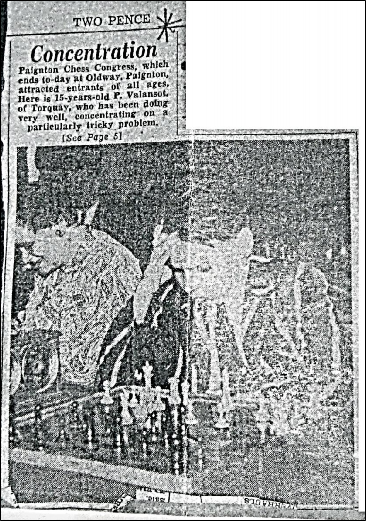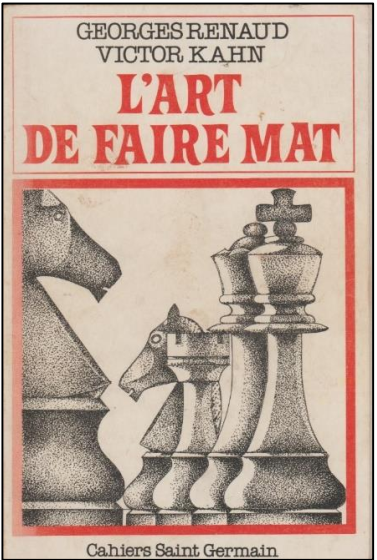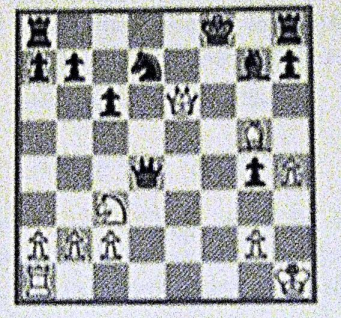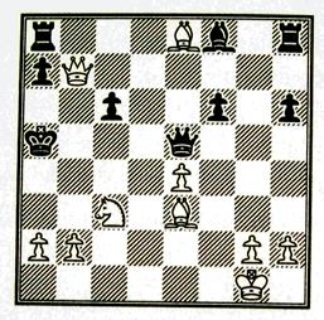I learnt to play chess at the age of six. I played in my first major tournament at the Paignton Chess Congress in 1952 when I was 14.
As I was the only child, it seemed to elicit the interest of the press which published my photo on their front page:

We played 40 moves/150 mins.
I was greatly encouraged by WIM Rowena Bruce which enabled me to be fearless and I finished in the top half.
I played at school, in chess clubs, and in cafes in rue St Jacques in the Quartier Latin, the oldest street in Paris.
I played chess on the seawall on the Malecon in La Habana during the Castro uprising. The players were unperturbed by the revolution surrounding them. The electric atmosphere seemed reminiscent of the fervour and legacy of Capablanca.
I went east to Santiago de Cuba and Guantanamo, where the local population were so busy shooting each other that they had little time for chess.
In China, a Shanghainese scholar taught me to play Xiangqi and introduced me to a talented Shanghainese painter and calligrapher whom I married, when we were both aged twenty-six.
Chess sets were essential accoutrements of the Scholar’s Studio in China.
18th century examples of both Xiangqi and Weiqi are on display in the magnificent Gugong in Taibei.
I played chess extensively in the Far East, mainly in cafes and also in the street, often with improvised equipment sitting on wooden boxes. Western chess was predominant, and at the time many were surprised that I played Xiangqi as well.
From Paris in 1981 I became an overseas member of The Travellers’ Club, London.
Our sister club in Paris is housed in the magnificent Hôtel de la Païva, the only hotel particulier (townhouse) left on the Champs-Élysées, and had many backgammon and chess sets, whereas there was not one in London.
I organised chess meetings and the equipment, and as Captain formed a team to play in HR cup inter-club chess. We had great fun and did moderately well in the HR cup.
I brought the National Liberal Club and the Roehampton Club into the fold and organised matches with New Scotland Yard.
The centre of activities was very much the RAC and we enjoyed playing against some stellar GMs in simultaneous games. IM Bill Hartston was very helpful.
Henry Mutkin and his fellow members were outstanding hosts.
My favourite book on chess:
L’Art de Faire Mat first published in Monaco in 1947 by Georges Renaud and Victor Kahn, a simple and basic book covering standard mating combinations clearly laid out and codified, serving more as threats than actual mates.

Strong players are, of course, on auto-pilot.
For weaker players who do not see the threats, these could lead to time trouble and material loss.
Here are 2 amusing exercises from the book:
|

White mates in four moves
|

White mates in three moves
|
My favourite Chess Player
Bobby Fischer
Brilliant first half of the 20th century players were the Cuban Capablanca and the Frenchman Alekhine.
However, in the second half of the 20th century, Bobby Fischer was confronted by the Soviet locomotive – a colossus which had analysed every possibility. Bobby Fischer, however, went off the beaten path at an early stage of the game, with outrageous moves. At the best, this put his opponent in time trouble.
Bobby Fischer electrified audiences and brought chess to a universal appeal, which has not been seen since.






